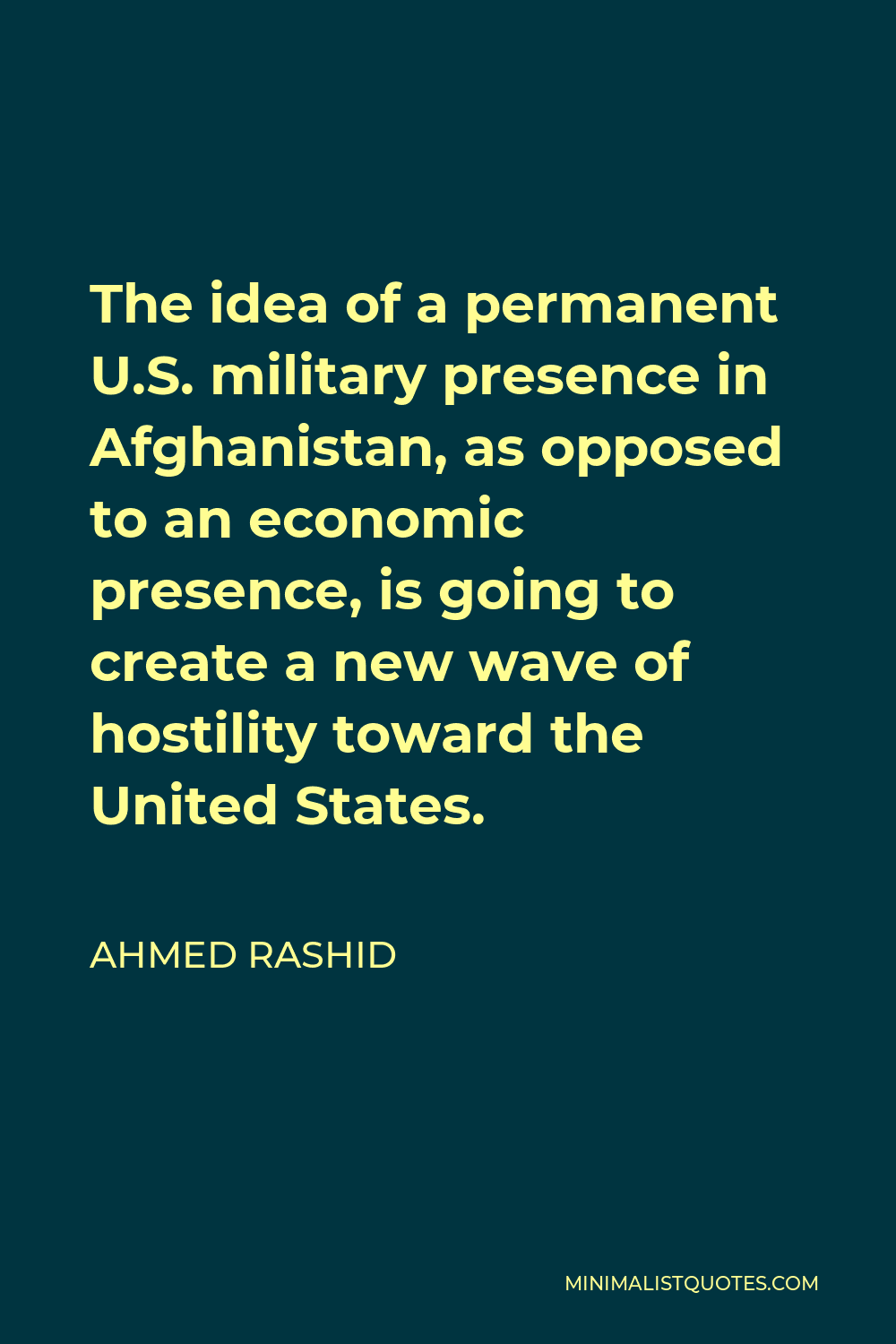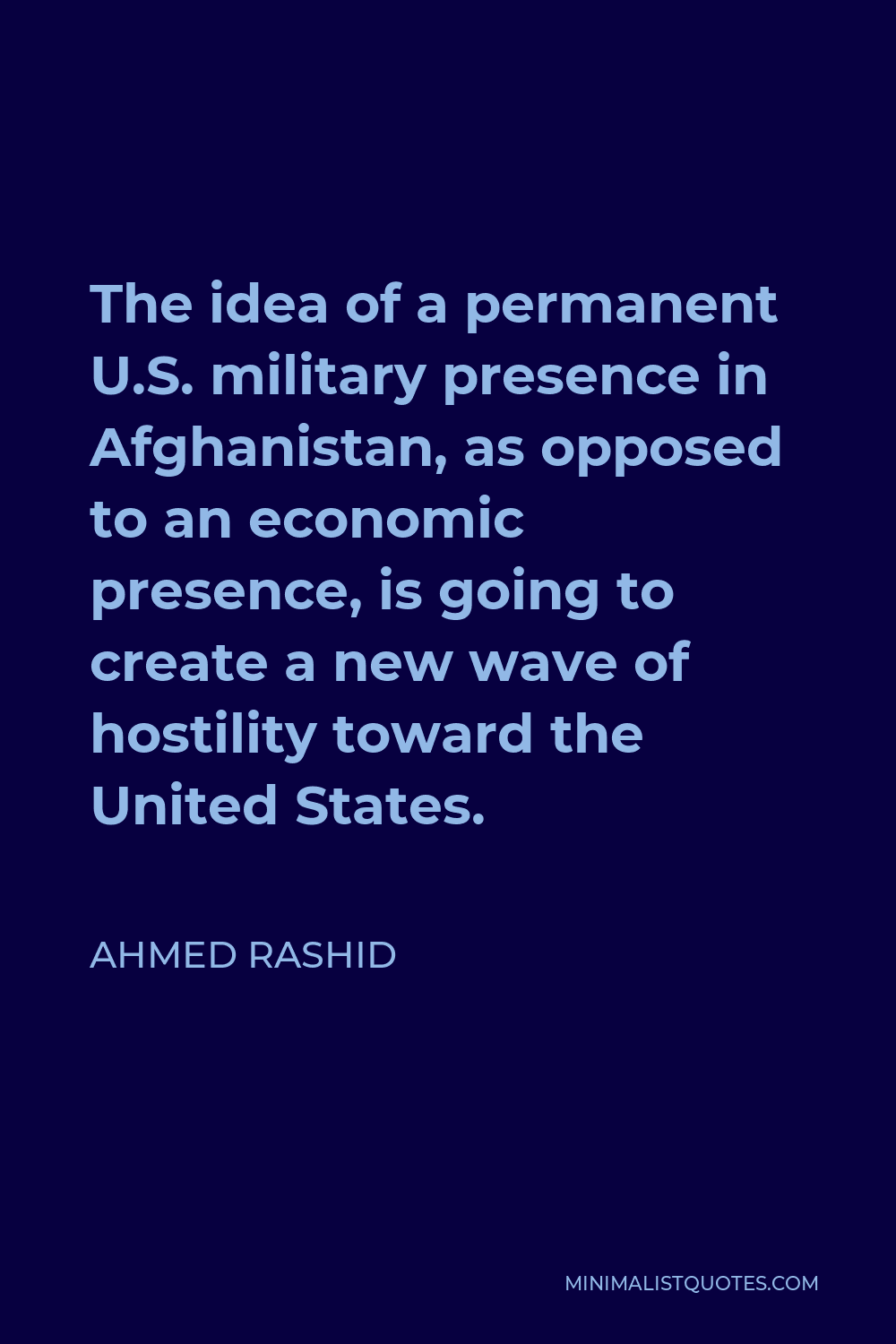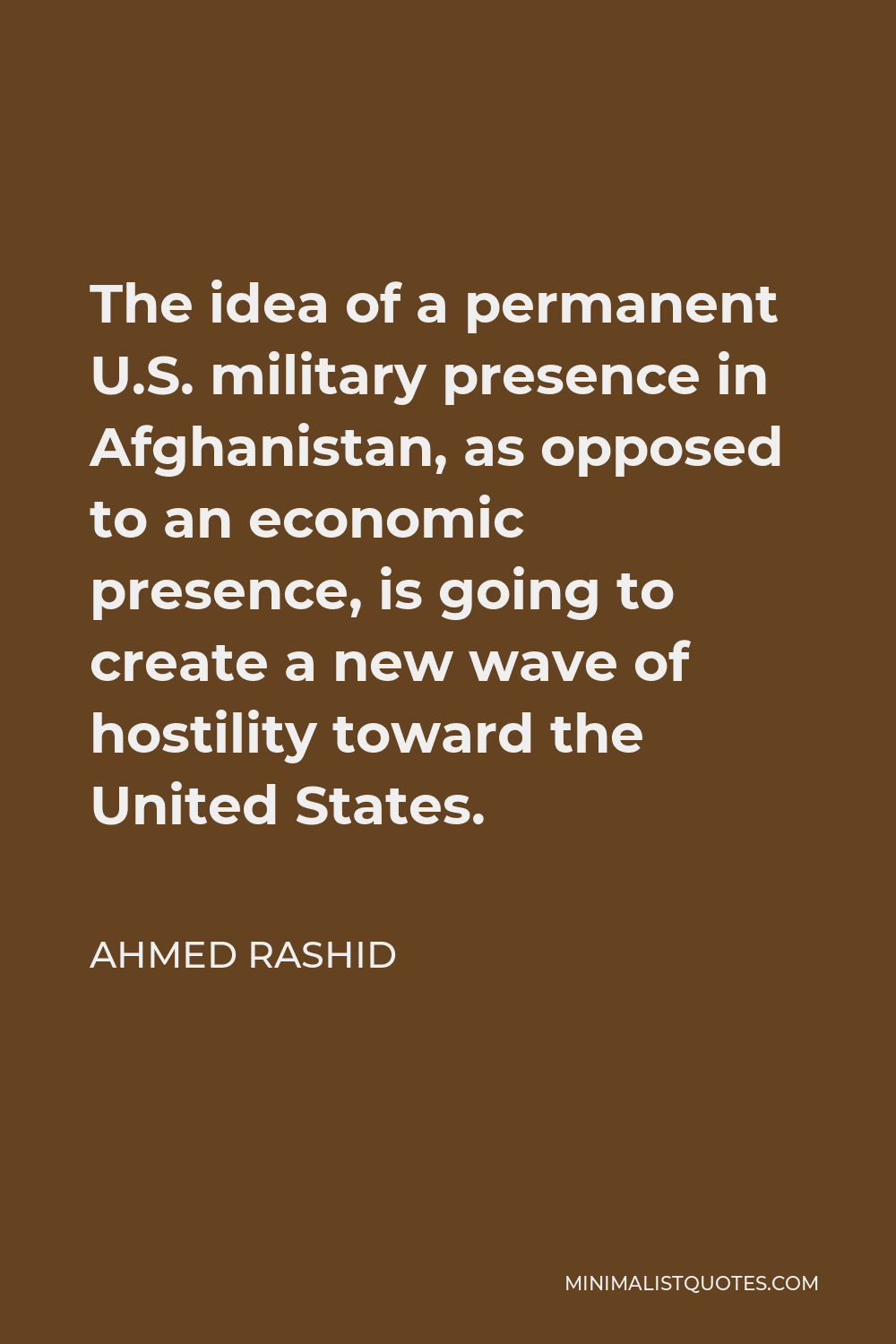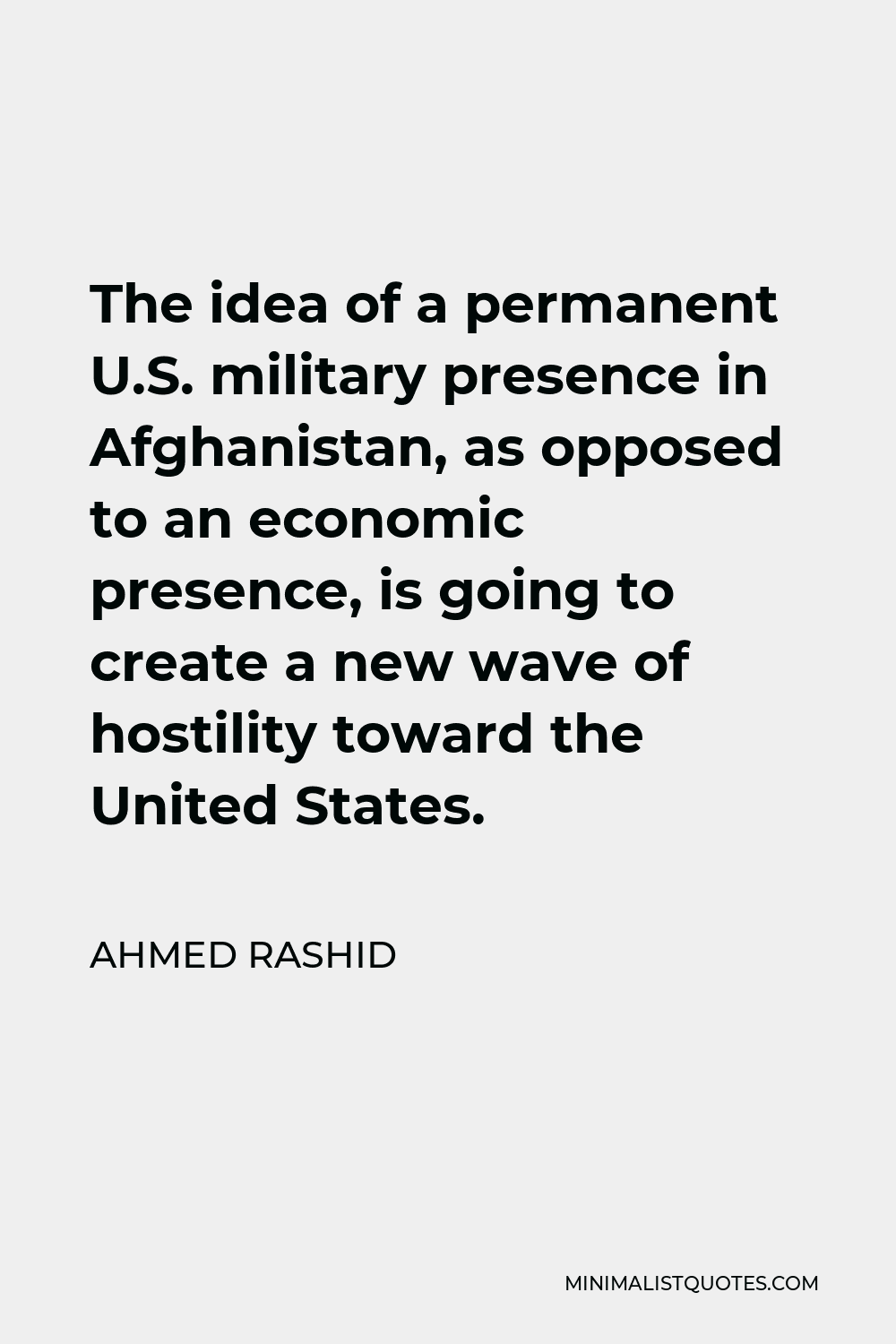If Afghan soldiers continue to kill American soldiers as is happening these days, it can hardly be assumed that they will stay in Afghanistan in the long term. And what role are they to play?
AHMED RASHIDThe idea of a permanent U.S. military presence in Afghanistan, as opposed to an economic presence, is going to create a new wave of hostility toward the United States.
More Ahmed Rashid Quotes
-





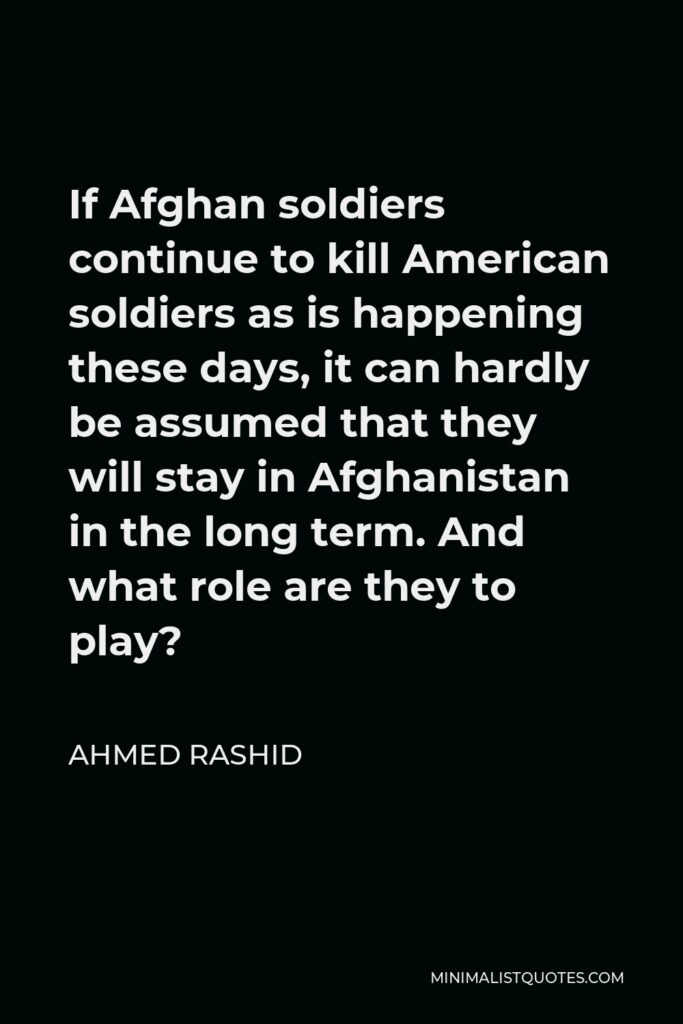

-





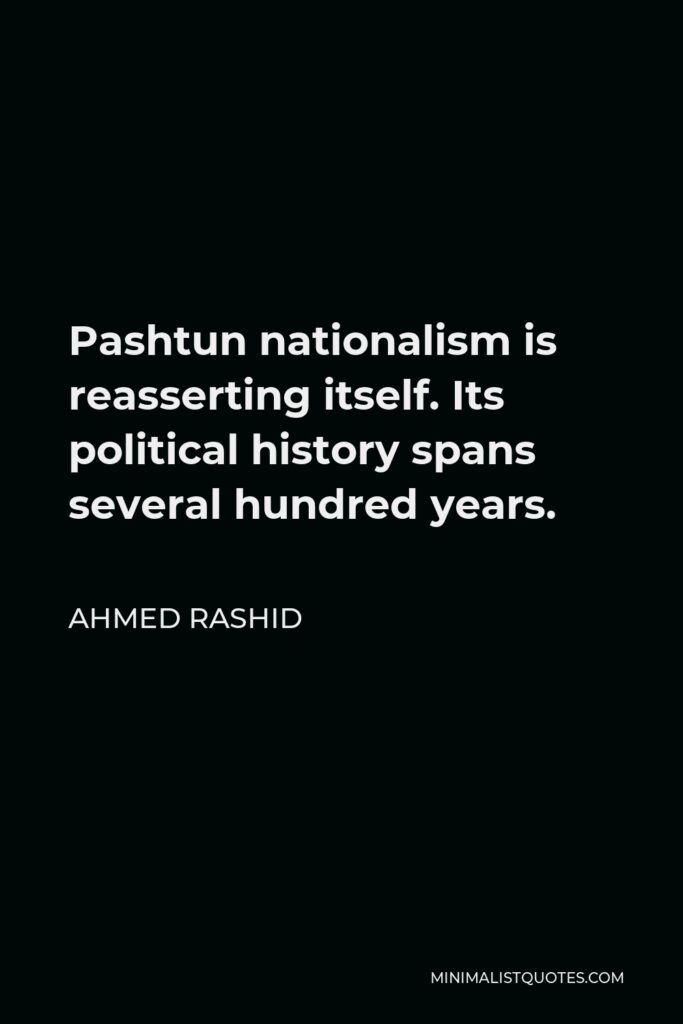

Pashtun nationalism is reasserting itself. Its political history spans several hundred years.
AHMED RASHID -





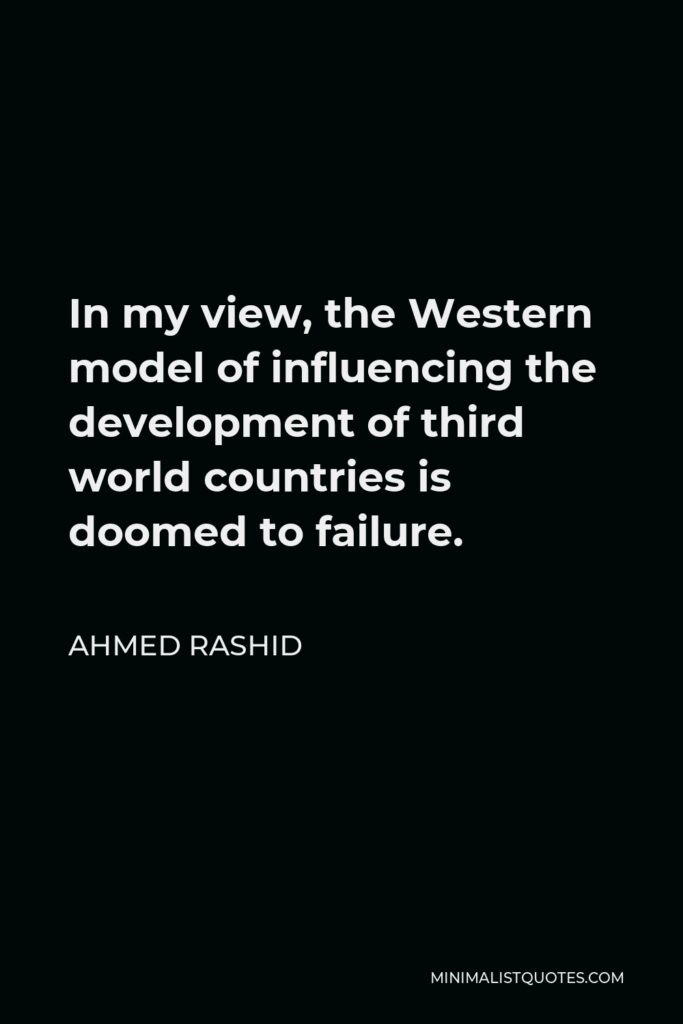

In my view, the Western model of influencing the development of third world countries is doomed to failure.
AHMED RASHID -





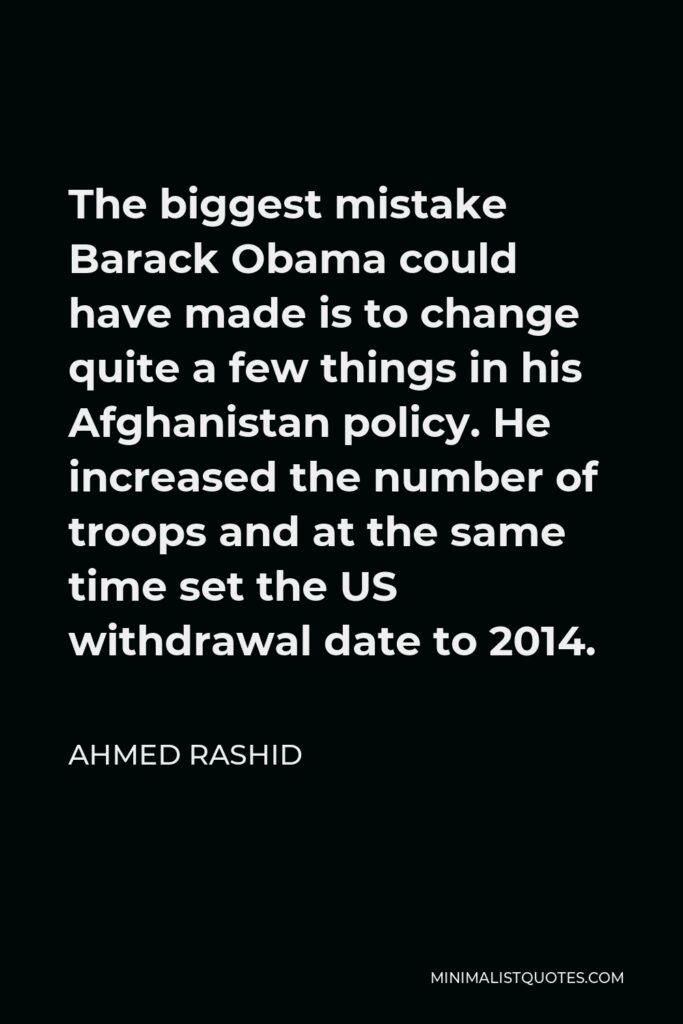

The biggest mistake Barack Obama could have made is to change quite a few things in his Afghanistan policy. He increased the number of troops and at the same time set the US withdrawal date to 2014.
AHMED RASHID -





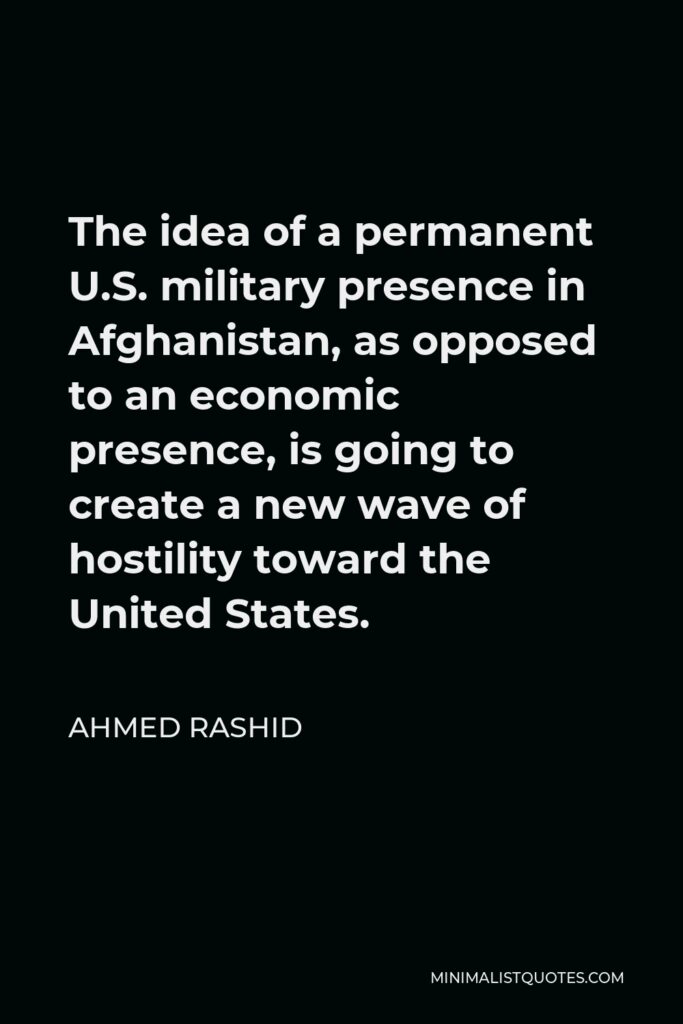

The idea of a permanent U.S. military presence in Afghanistan, as opposed to an economic presence, is going to create a new wave of hostility toward the United States.
AHMED RASHID -





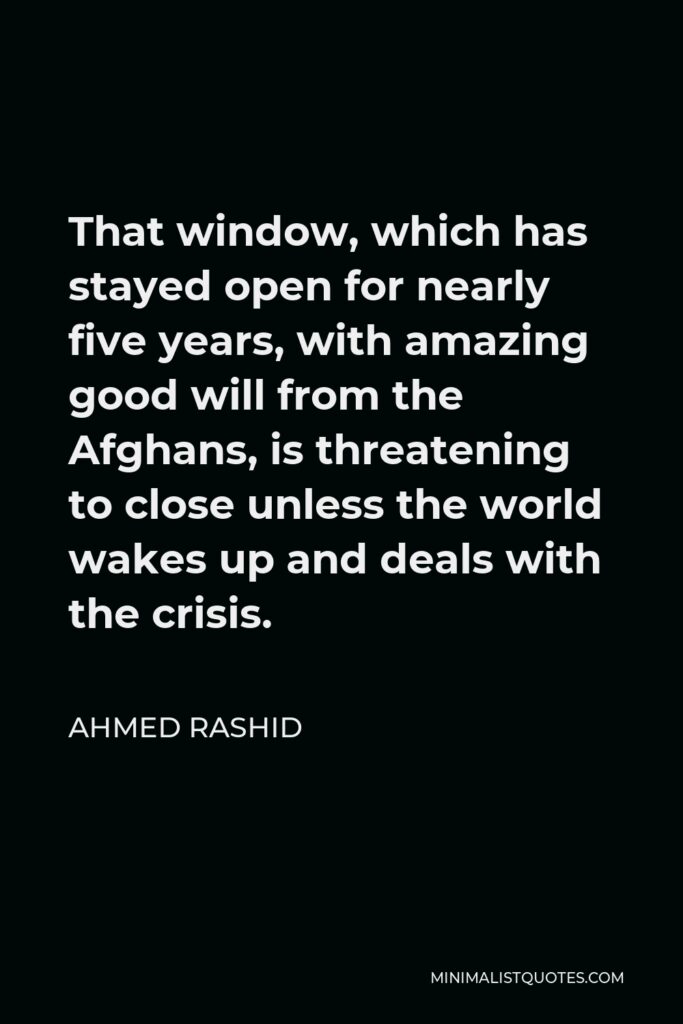

That window, which has stayed open for nearly five years, with amazing good will from the Afghans, is threatening to close unless the world wakes up and deals with the crisis.
AHMED RASHID -





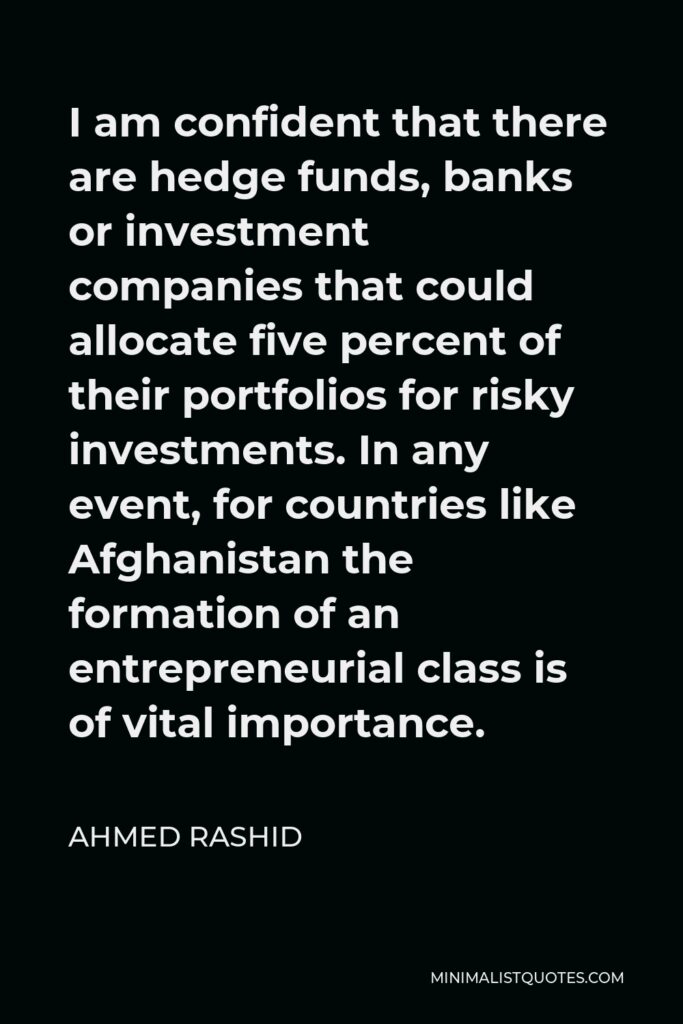

I am confident that there are hedge funds, banks or investment companies that could allocate five percent of their portfolios for risky investments. In any event, for countries like Afghanistan the formation of an entrepreneurial class is of vital importance.
AHMED RASHID -





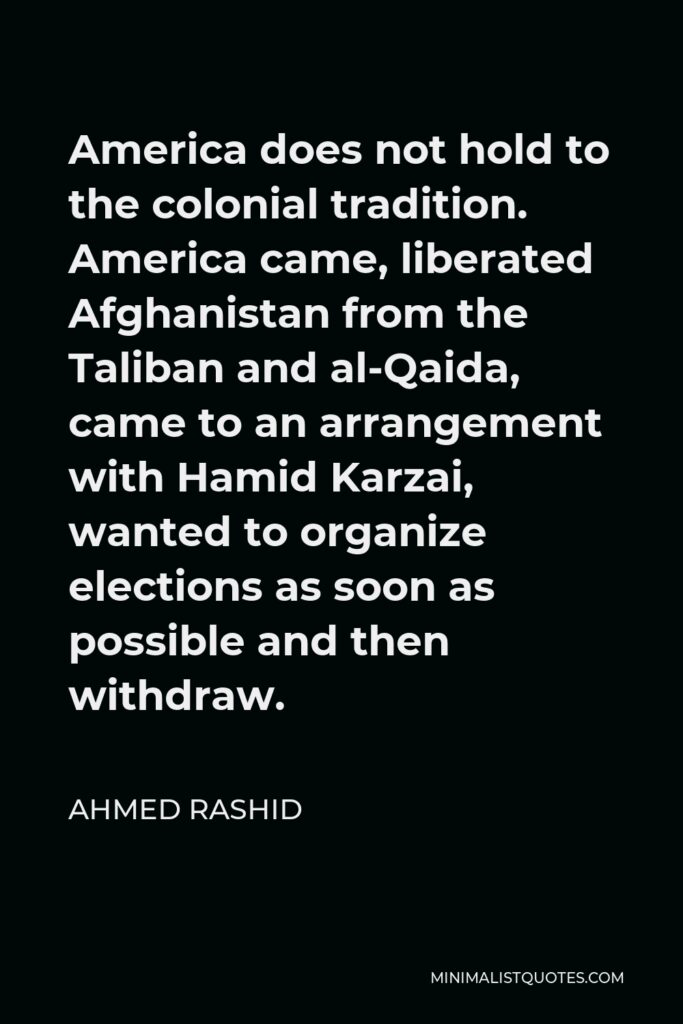

America does not hold to the colonial tradition. America came, liberated Afghanistan from the Taliban and al-Qaida, came to an arrangement with Hamid Karzai, wanted to organize elections as soon as possible and then withdraw.
AHMED RASHID -







This year we watched the collapse of Mali, a consequence of the Libyan civil war. The south of Libya and Mali, and Niger too, are well on the way to becoming a no-man’s land. After 9/11,
AHMED RASHID -





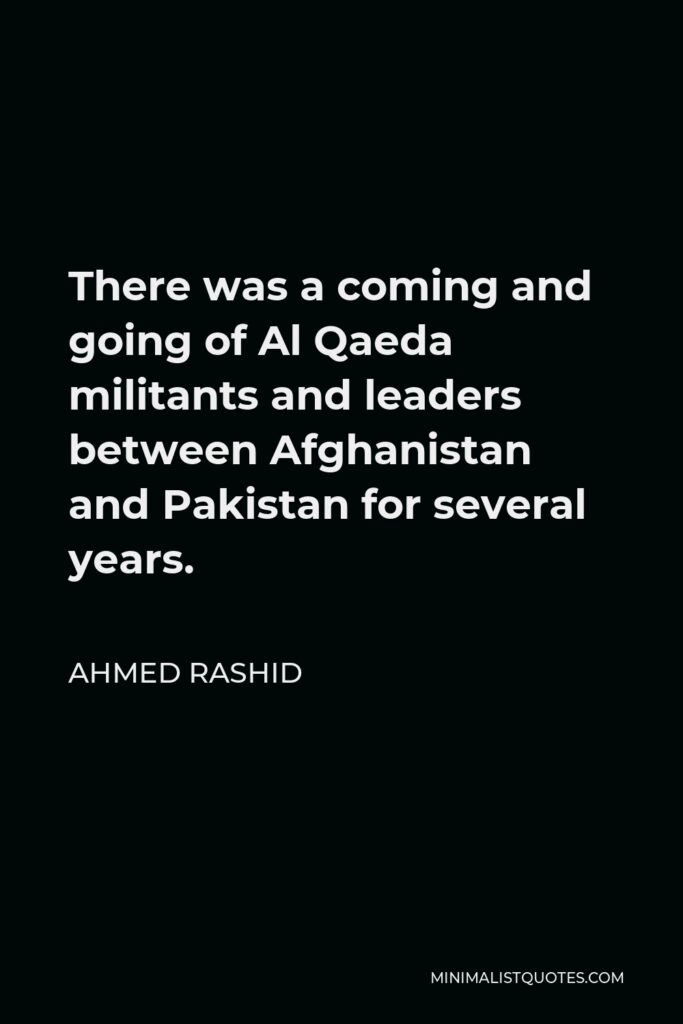

There was a coming and going of Al Qaeda militants and leaders between Afghanistan and Pakistan for several years.
AHMED RASHID -





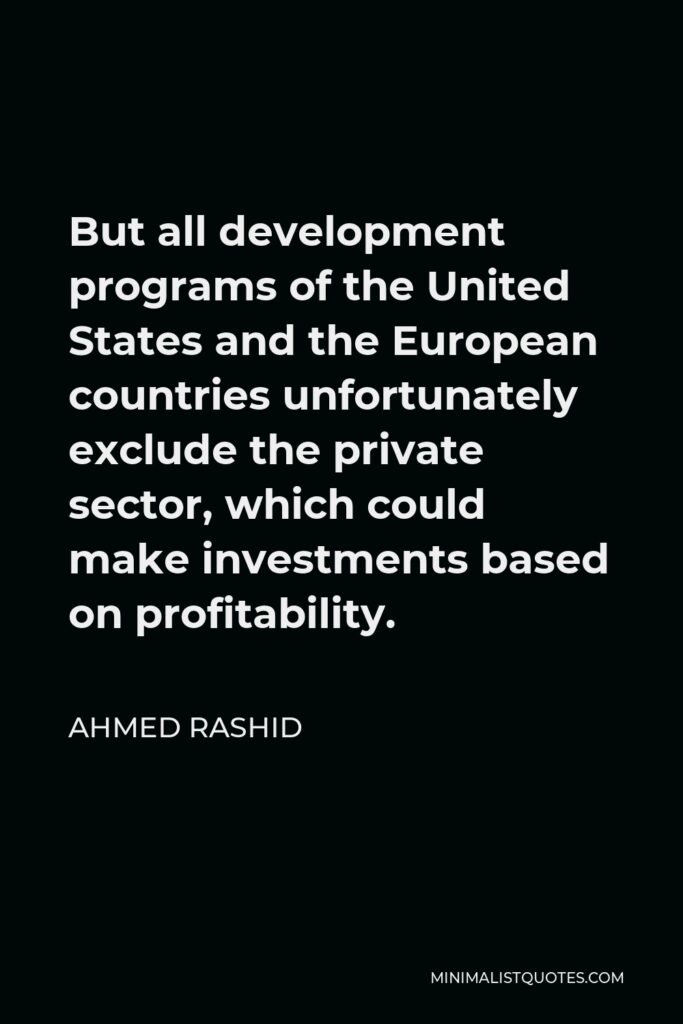

But all development programs of the United States and the European countries unfortunately exclude the private sector, which could make investments based on profitability.
AHMED RASHID -





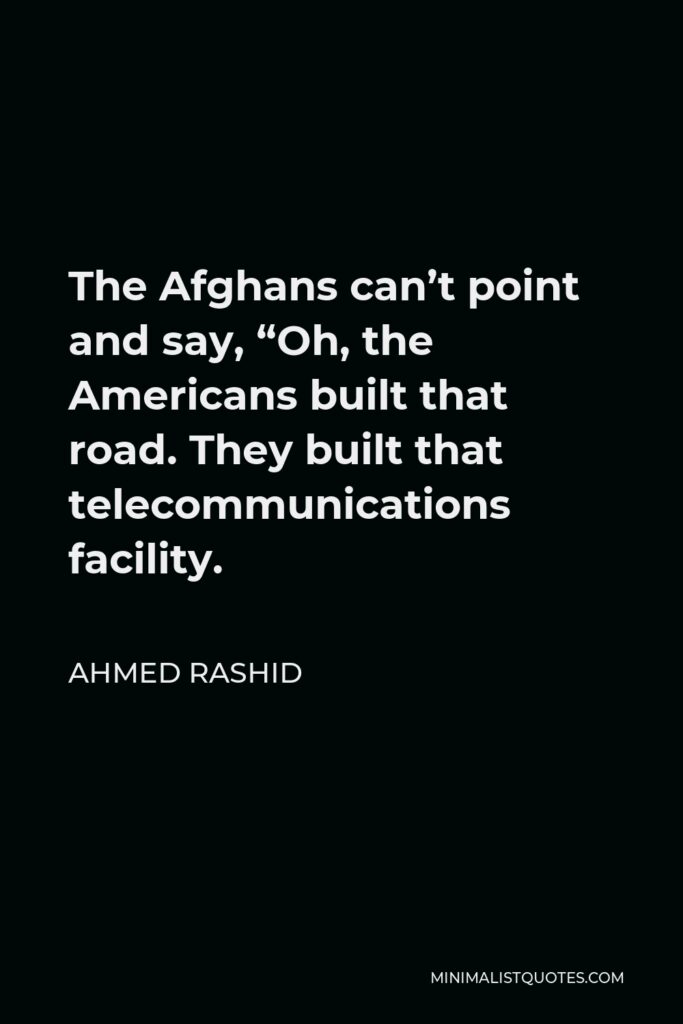

The Afghans can’t point and say, “Oh, the Americans built that road. They built that telecommunications facility.
AHMED RASHID -





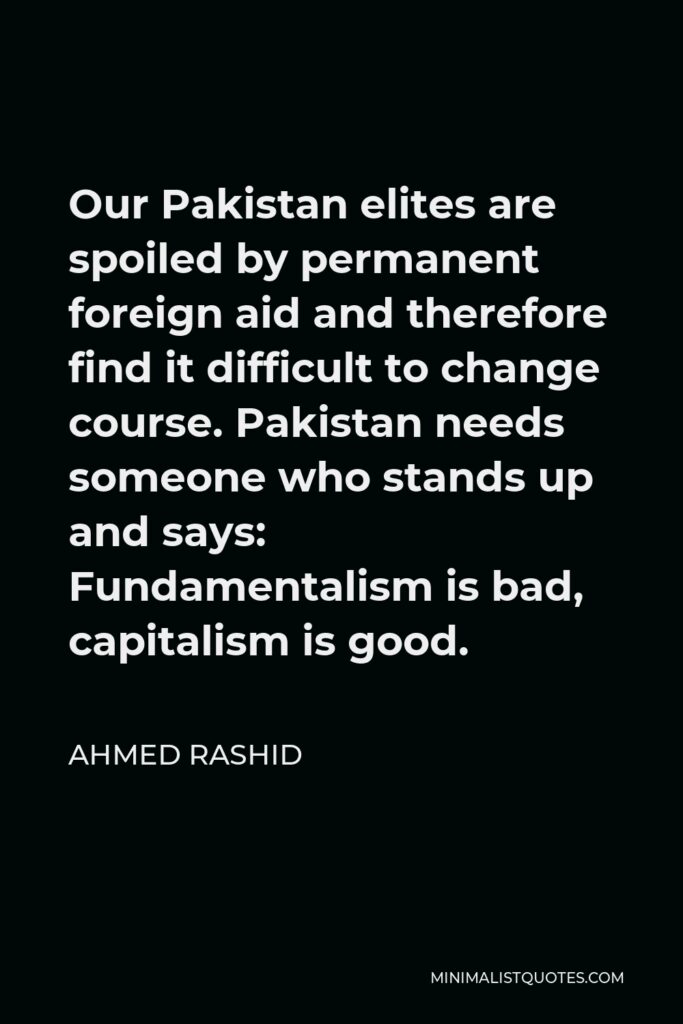

Our Pakistan elites are spoiled by permanent foreign aid and therefore find it difficult to change course. Pakistan needs someone who stands up and says: Fundamentalism is bad, capitalism is good.
AHMED RASHID -





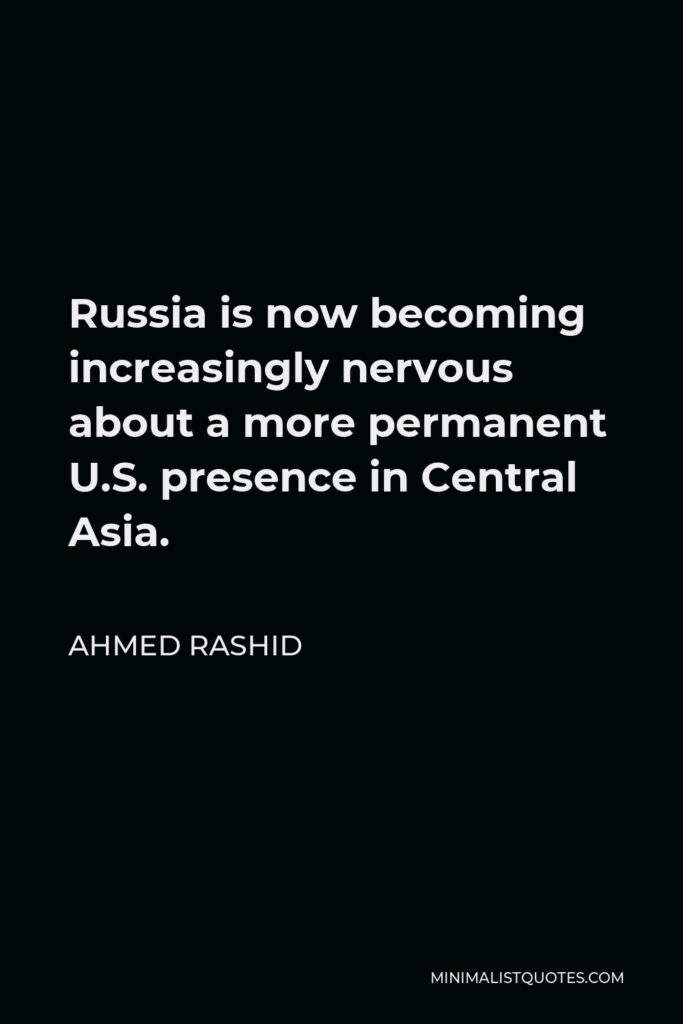

Russia is now becoming increasingly nervous about a more permanent U.S. presence in Central Asia.
AHMED RASHID -





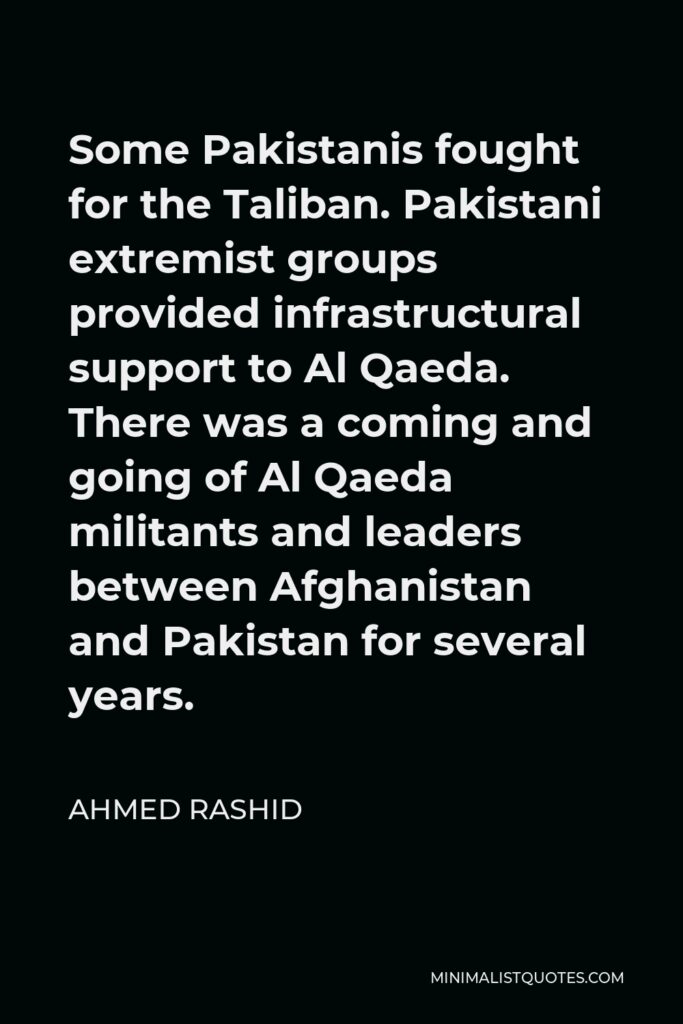

Some Pakistanis fought for the Taliban. Pakistani extremist groups provided infrastructural support to Al Qaeda. There was a coming and going of Al Qaeda militants and leaders between Afghanistan and Pakistan for several years.
AHMED RASHID -





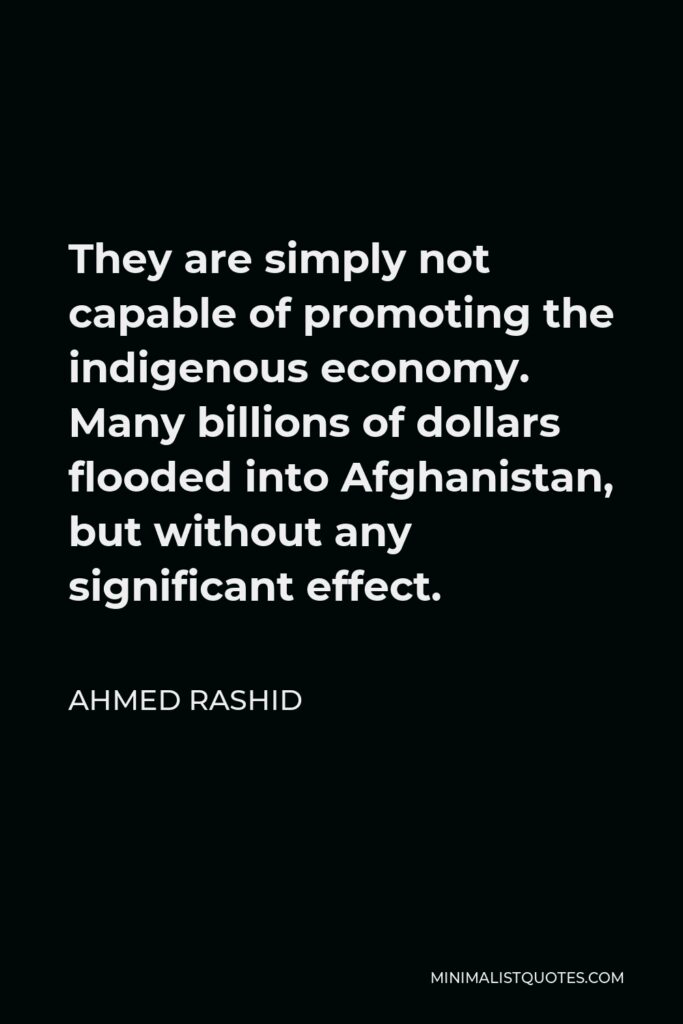

They are simply not capable of promoting the indigenous economy. Many billions of dollars flooded into Afghanistan, but without any significant effect.
AHMED RASHID

